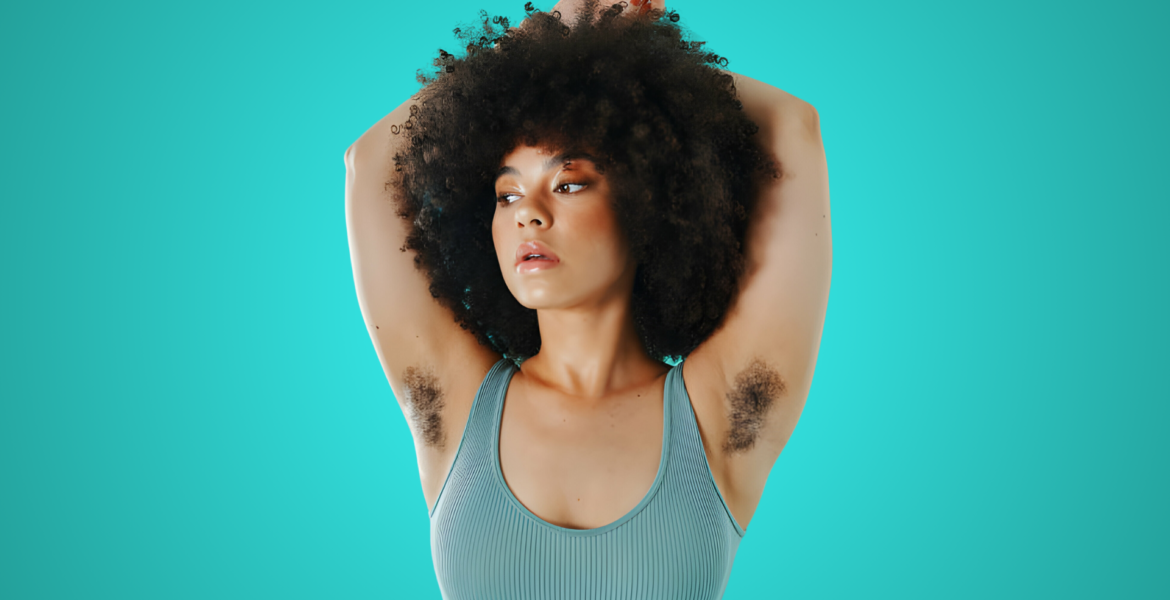Considered a masculine trait for ages, body hair wasn’t something typically associated with femininity. But nowadays, many women – including celebrities – are opting to ditch the razor. Here’s a look at why some women are rethinking hair removal.
“Even though feminism contributes to deconstructing this expectation, the desire to remove hair still lingers; it’s how we’ve been brought up!” For many women, like Juliette Lenrouilly, pushing back against the pressure to have hairless bodies remains an ongoing challenge. As a co-author of the investigation “Let’s Talk About Hair” by Massot Editions, along with Léa Taieb, she delved into why women still feel obligated to adhere to societal standards of hairlessness.
“Hair has long been seen as a masculine trait in a society where gender differentiation is emphasised,” reminds Juliette Lenrouilly. But while the obsession with perfectly smooth skin persists, there’s been a shift in individual practices: more women are opting out of hair removal, with an Ifop survey for Charles showing an increase from 15% in 2013 to 28% in 2021.
Why do women remove hair, and for whom?
In “Let’s Talk About Hair,” Juliette Lenrouilly and Léa Taieb asked 1,700 women about their reasons for hair removal. “Each time, the response starts with ‘I do it for myself’… but upon deeper exploration, it often becomes ‘It’s for my partner,’ or ‘When I go out,’ ‘When I wear a dress,’ ‘When I go to the beach.’” It’s often about societal expectations.
Béatrice, 29, often heard this sentiment from friends who still remove hair. “They adamantly claim it’s their choice, but I’ve been there too!” Béatrice initially stopped removing hair because of feminist beliefs: “I was obsessed with body hair for a long time, thinking I was hairier than others. As a teen, I even considered laser treatment. Then, around 21-22, I came across blogs of queer women who didn’t remove hair at all, and I found them attractive; I wanted to embody that vibe.” Today, it’s mostly out of “laziness” that she’s less inclined to remove hair. Interestingly, the 2020 lockdown was a turning point for many women.
This period offered a fresh perspective, according to Juliette Lenrouilly: “Women resumed hair removal afterward, but for a few months, they could observe their bodies. For the first time, they saw their hair grow. It allowed them to discover their body hair, its colour, texture, and to appreciate running their hands over their legs, being curious and compassionate towards their bodies.” Consequently, one in six French women claim to remove less hair than before the lockdown, as per Ifop.
Feeling the pressure from others
For Sarah, 37, ceasing hair removal in the early 2010s was about reclaiming her natural self. “I started making my shampoo, deodorant, and wanted to reclaim my body because it often feels like it’s not truly ours, even in public spaces. I wanted to embrace all parts of myself, including hair, especially the hair on my armpits that I used to shave constantly.”
In her intimate relationships, Sarah has never faced criticism from partners; her last partner even expressed appreciation for her natural state. However, the perception that an unshaven woman may be less attractive persists. Nonetheless, in reality, the majority of heterosexual men don’t mind body hair in sexual relationships, whether it’s armpits (66%), legs (61%), or pubic hair (70%). However, one in four men has requested their partner to remove pubic hair completely.
“I’ve dated heterosexual guys who weren’t particularly enlightened, and they didn’t care!” Béatrice confirms. However, asserting this choice is trickier in professional settings: “I don’t want it to affect my interactions with colleagues or be singled out because of it.” She adjusts her outfits to conceal her armpit hair. “During a training session, someone made fun of me for not shaving my legs. I overheard a woman say, ‘But what does her boyfriend think?’ I chose to ignore it; I don’t want to engage in that debate.”
Not pro-hair? According to Ifop, 60% of those surveyed believe that displaying unshaven armpits or legs in the workplace is inappropriate for women.
Hair visibility in public spaces
Is Gen Z exempt from the disdain towards female body hair? Not entirely, but they’re growing up in a time where women’s body hair is becoming more visible. “We’re fortunate to have celebrities like Emily Ratajkowski and Angèle showing their hair, which was rare in the past,” notes Juliette Lenrouilly. Their research for “Let’s Talk About Hair” was eye-opening, revealing that many boys, even teenagers, weren’t aware that women have body hair until they saw images in public spaces.
However, the pressure to be hairless persists. “The stigma around body hair is still present, though less pronounced than in the 90s-2000s. Hair can be seen as cool, but only when cool people keep it.” Juliette Lenrouilly points out the conflicting messages on social media: on one hand, feminist figures embracing body hair, stretch marks, wrinkles, advocating for self-acceptance, and on the other, an ideal of flawlessness and the promotion of permanent hair removal techniques.
Finally, the “Januhairy” movement at the beginning of the year shed light on those who choose to embrace their natural hair for a month. “As trivial as it may seem, deciding not to alter your body for a month is significant, even if you return to your usual routine afterward,” Juliette Lenrouilly emphasises.
This article was syndicated from Marie Claire France
Translated and adapted by Praise Vandeh, Marie Claire Nigeria Content Writer

